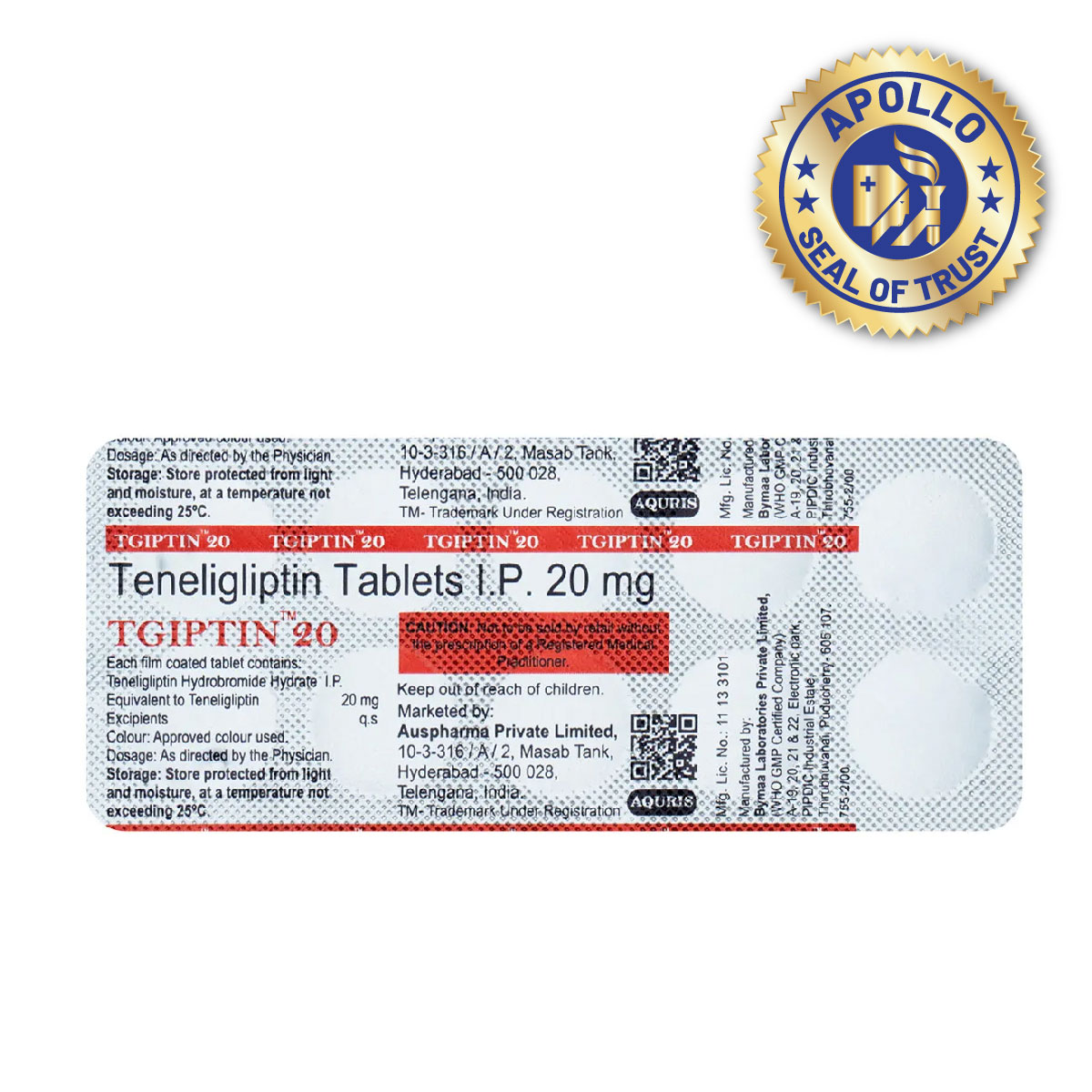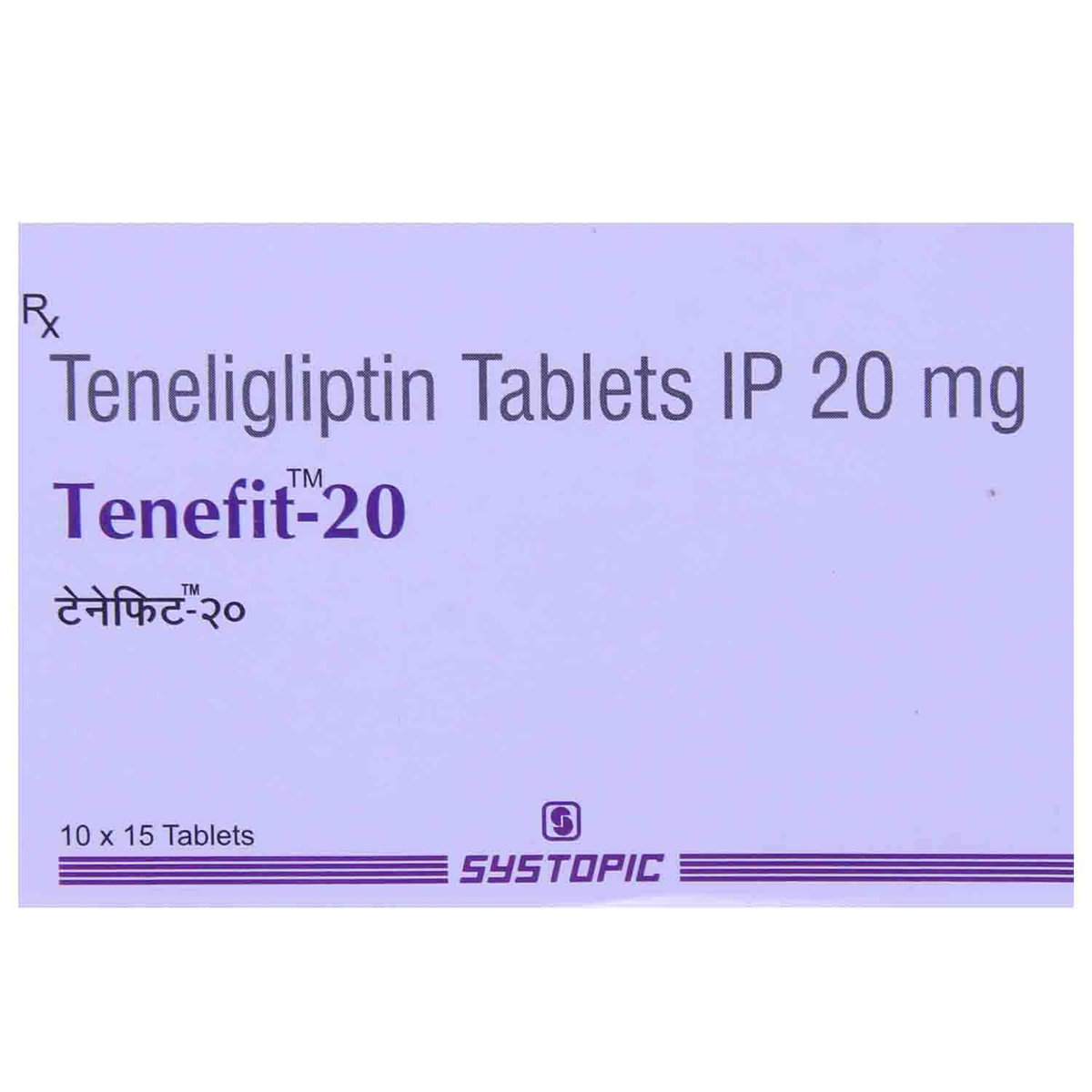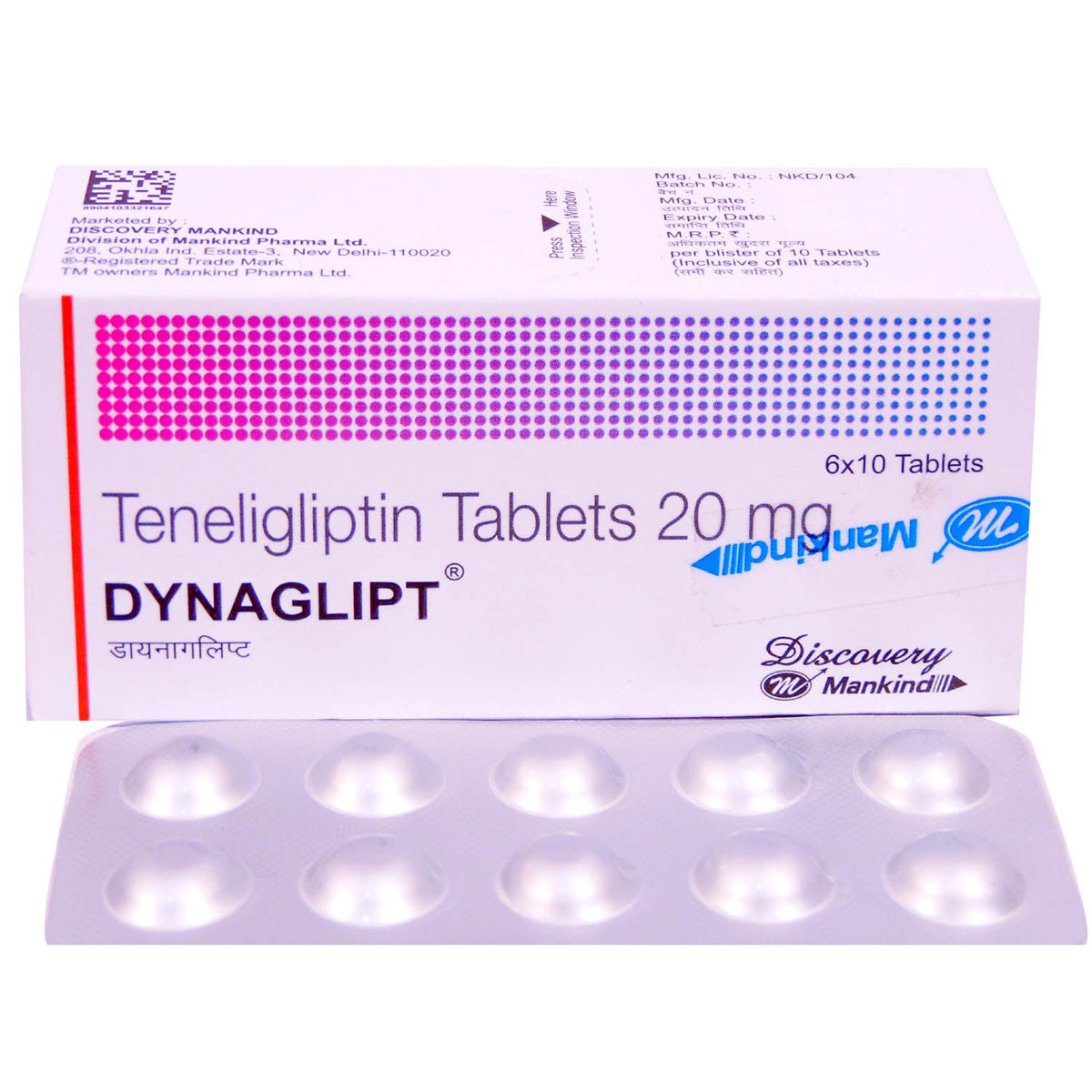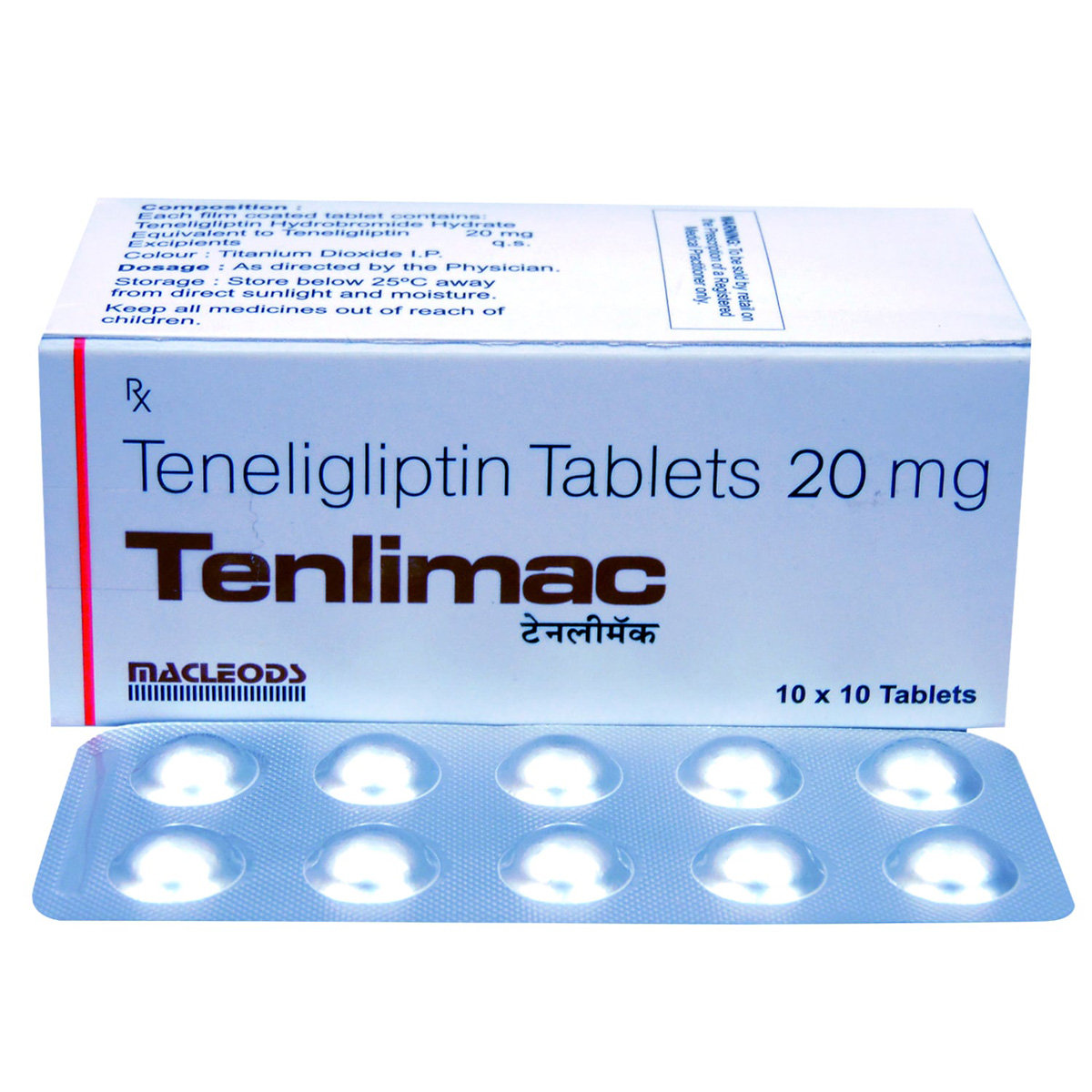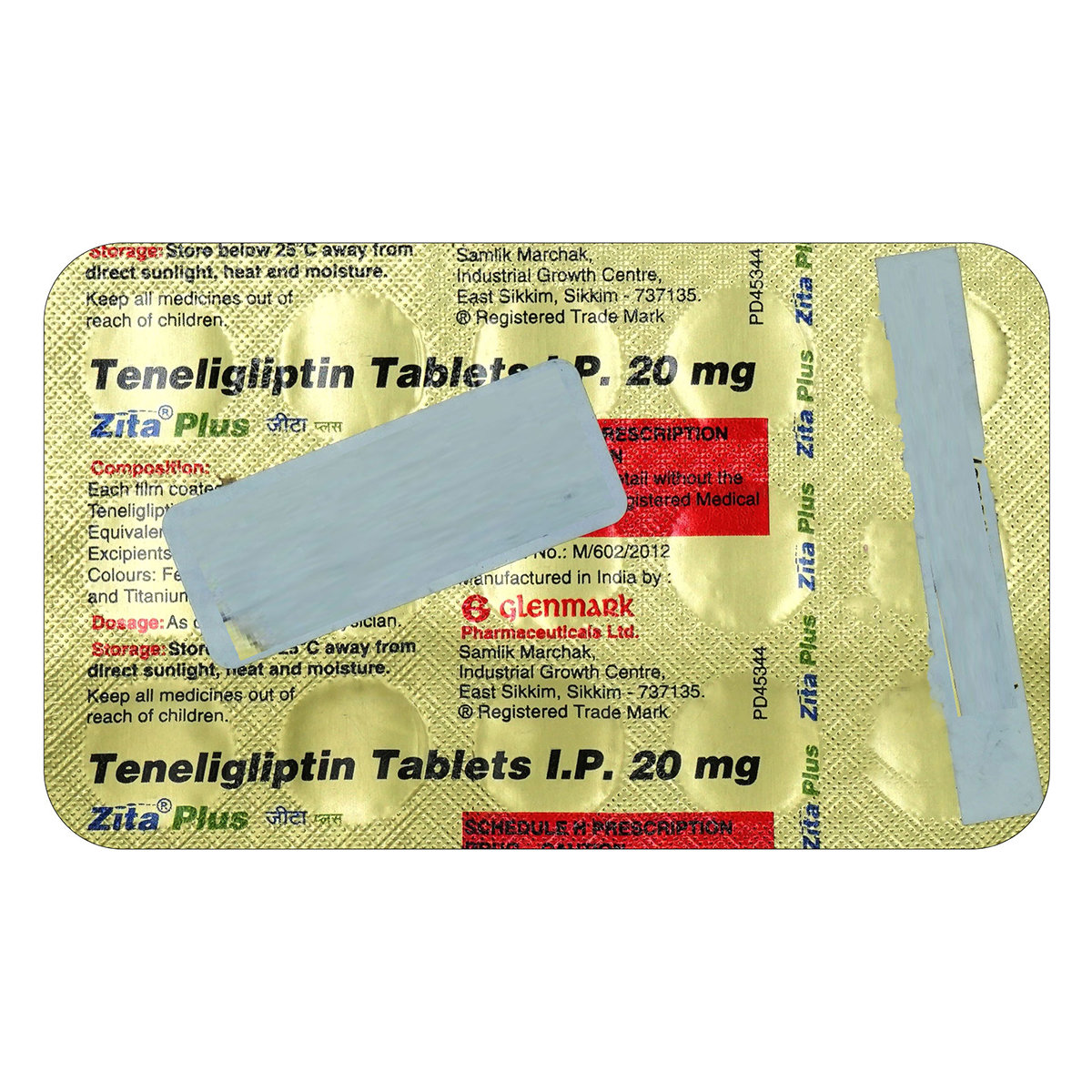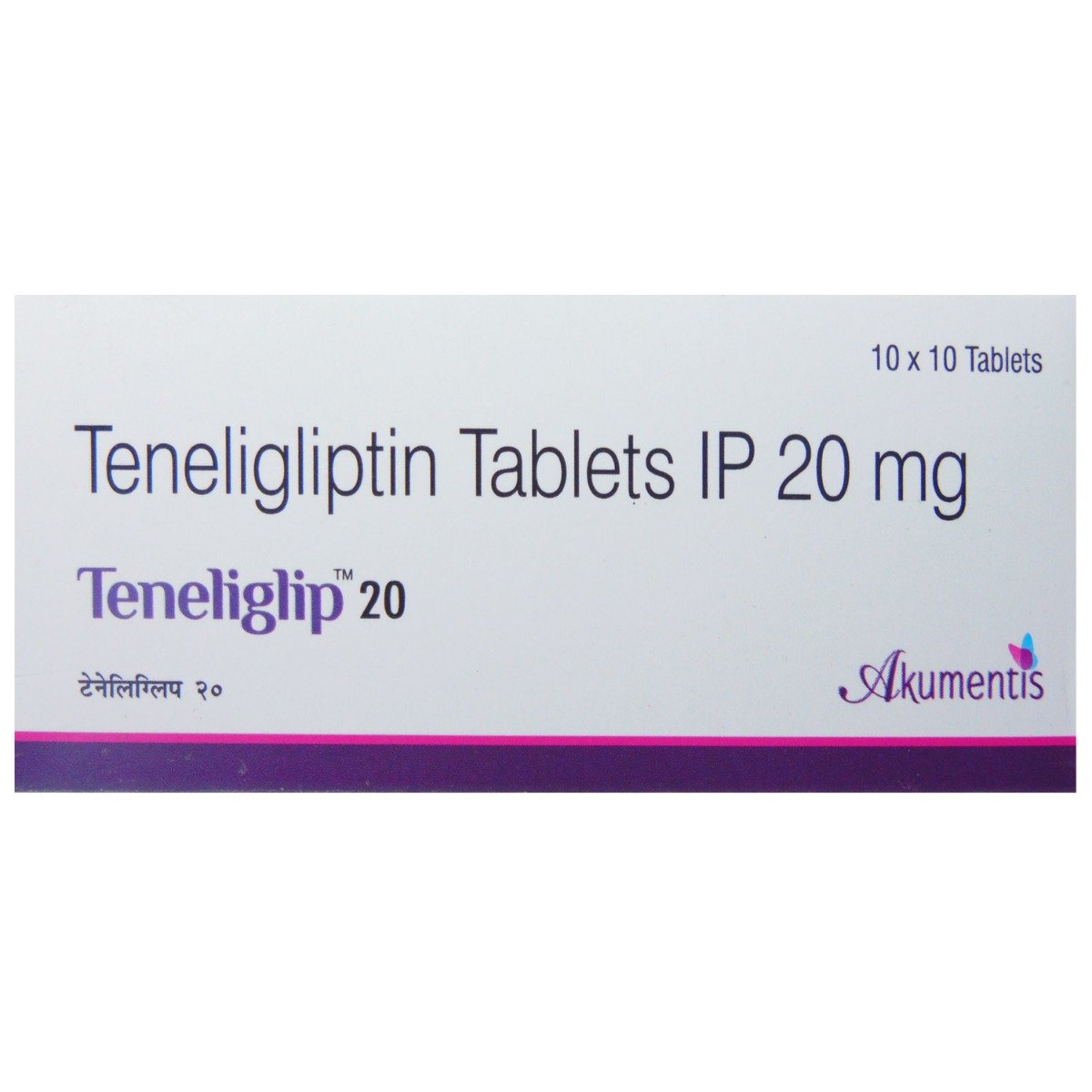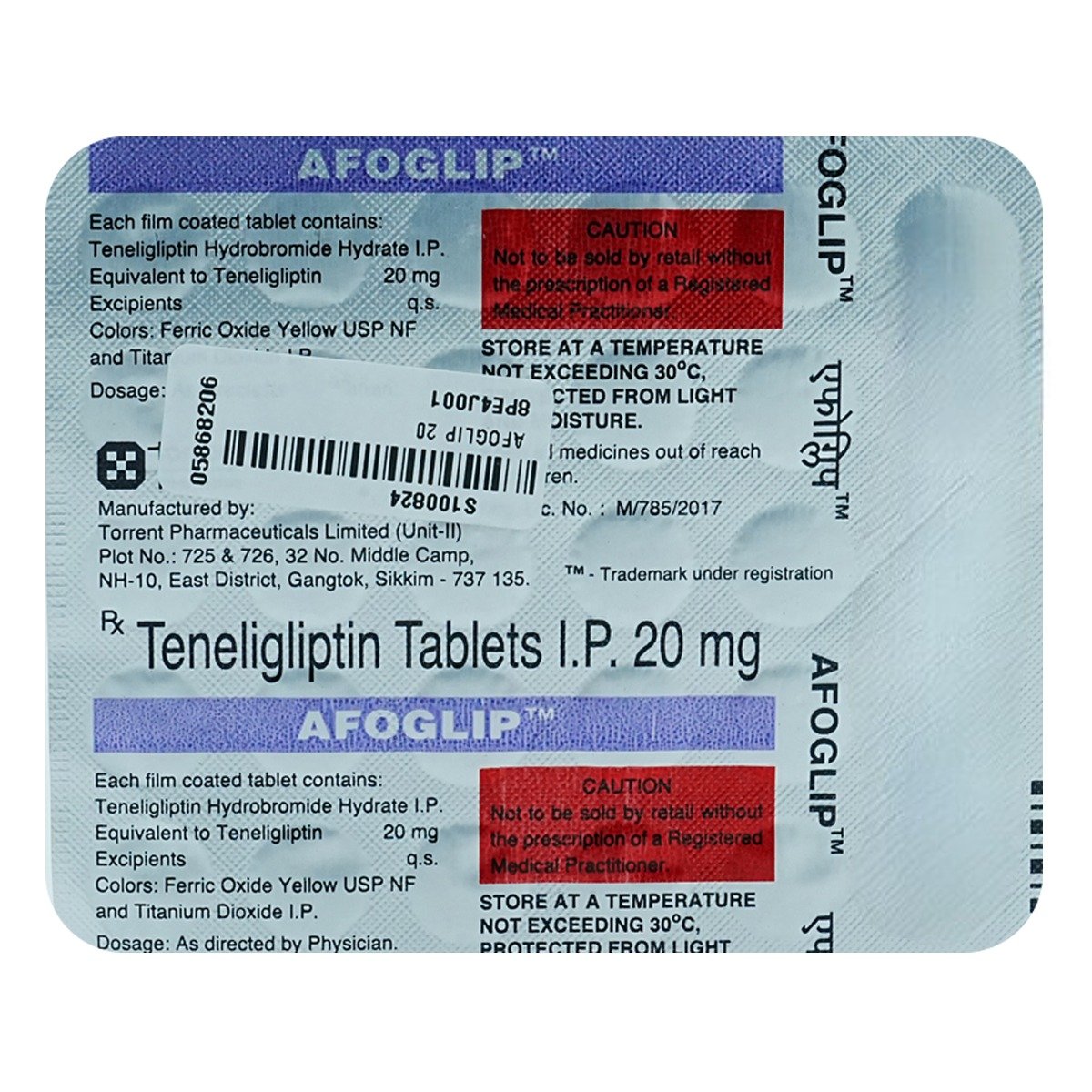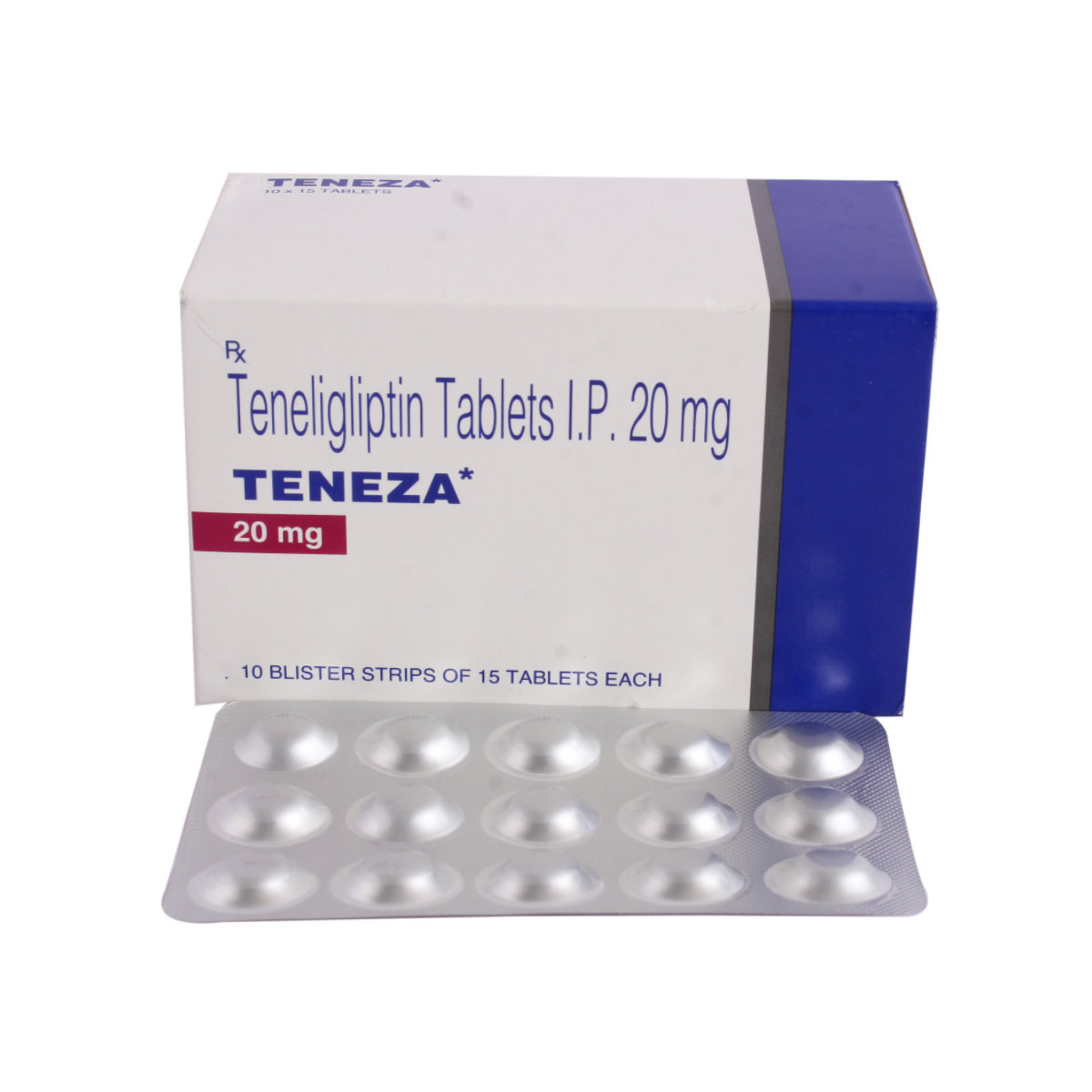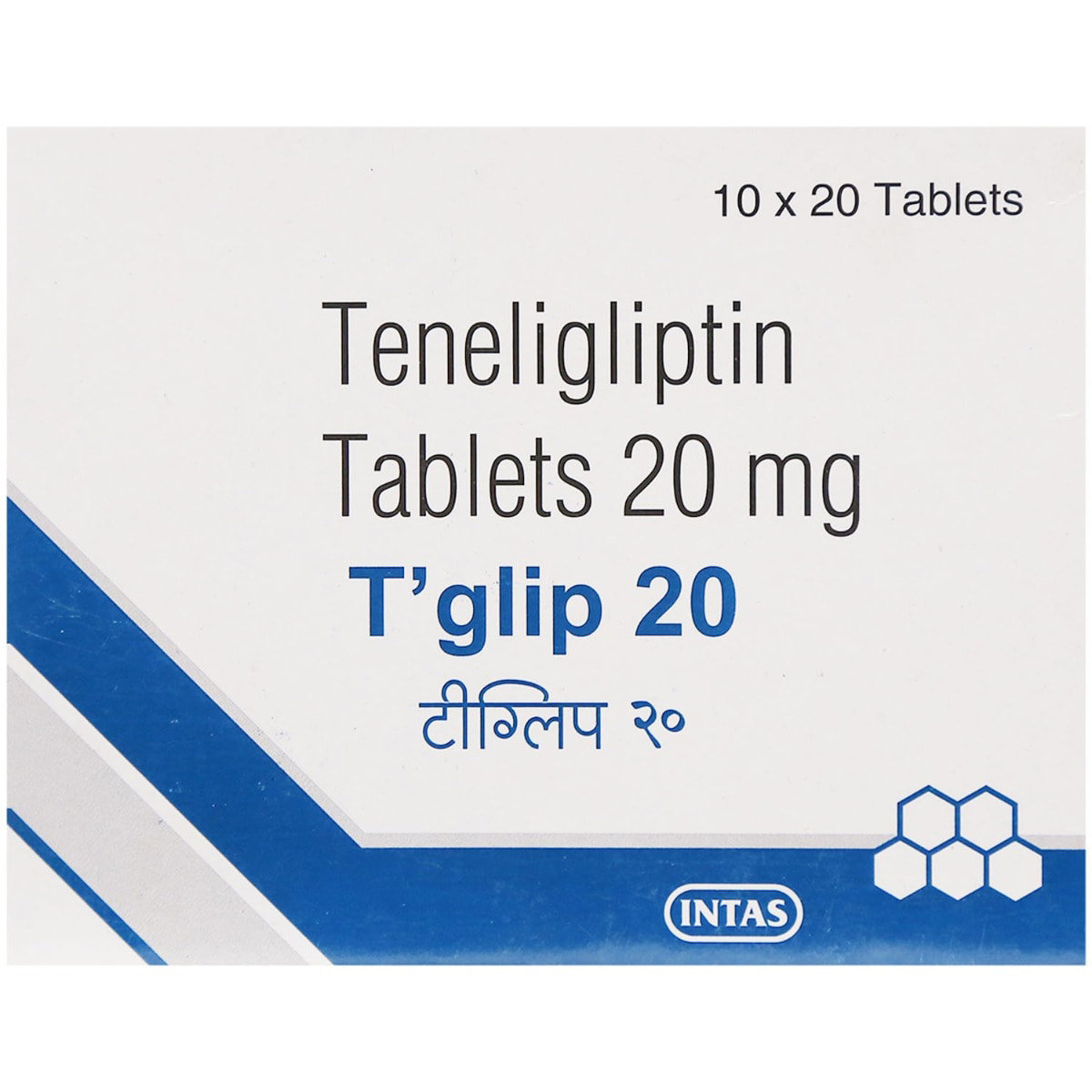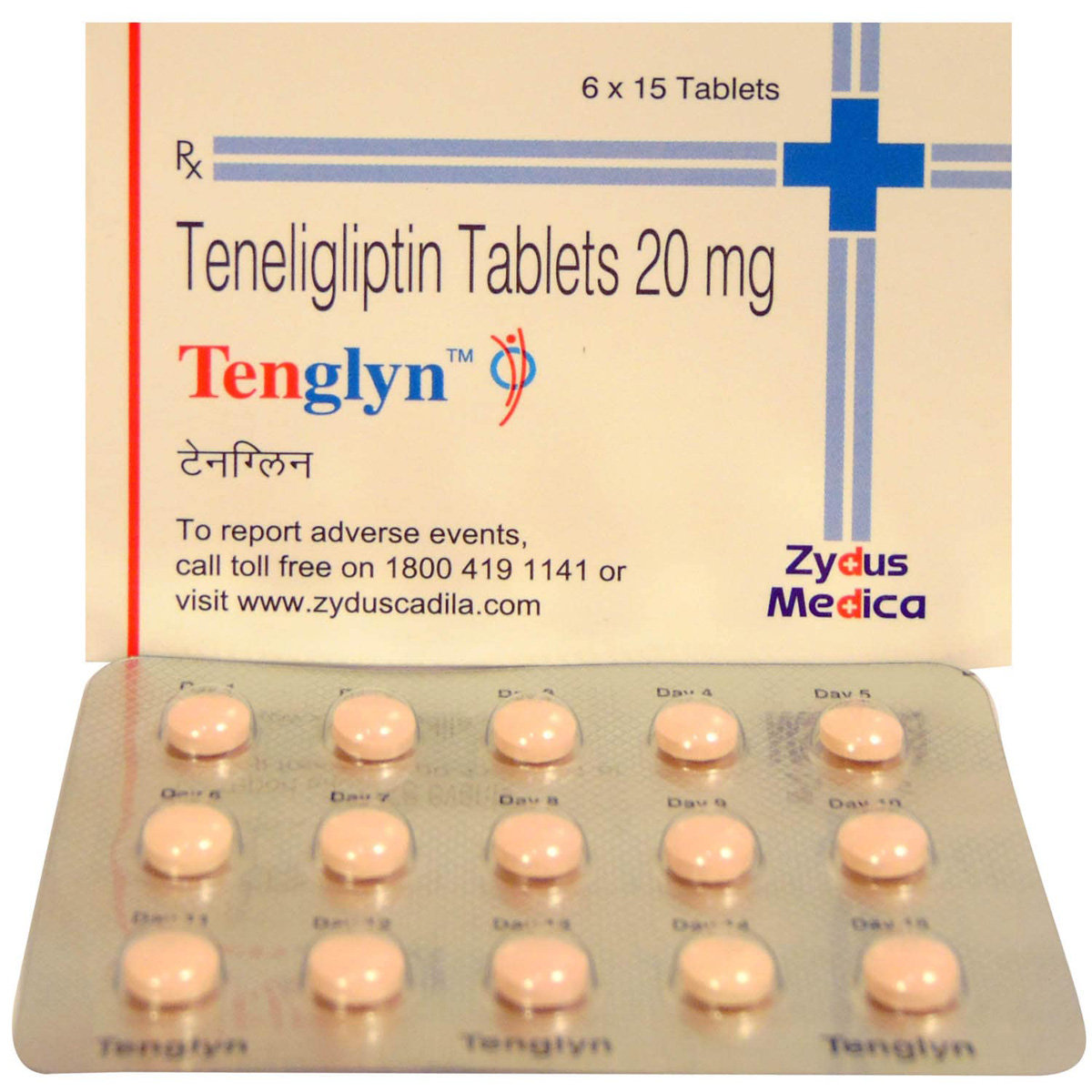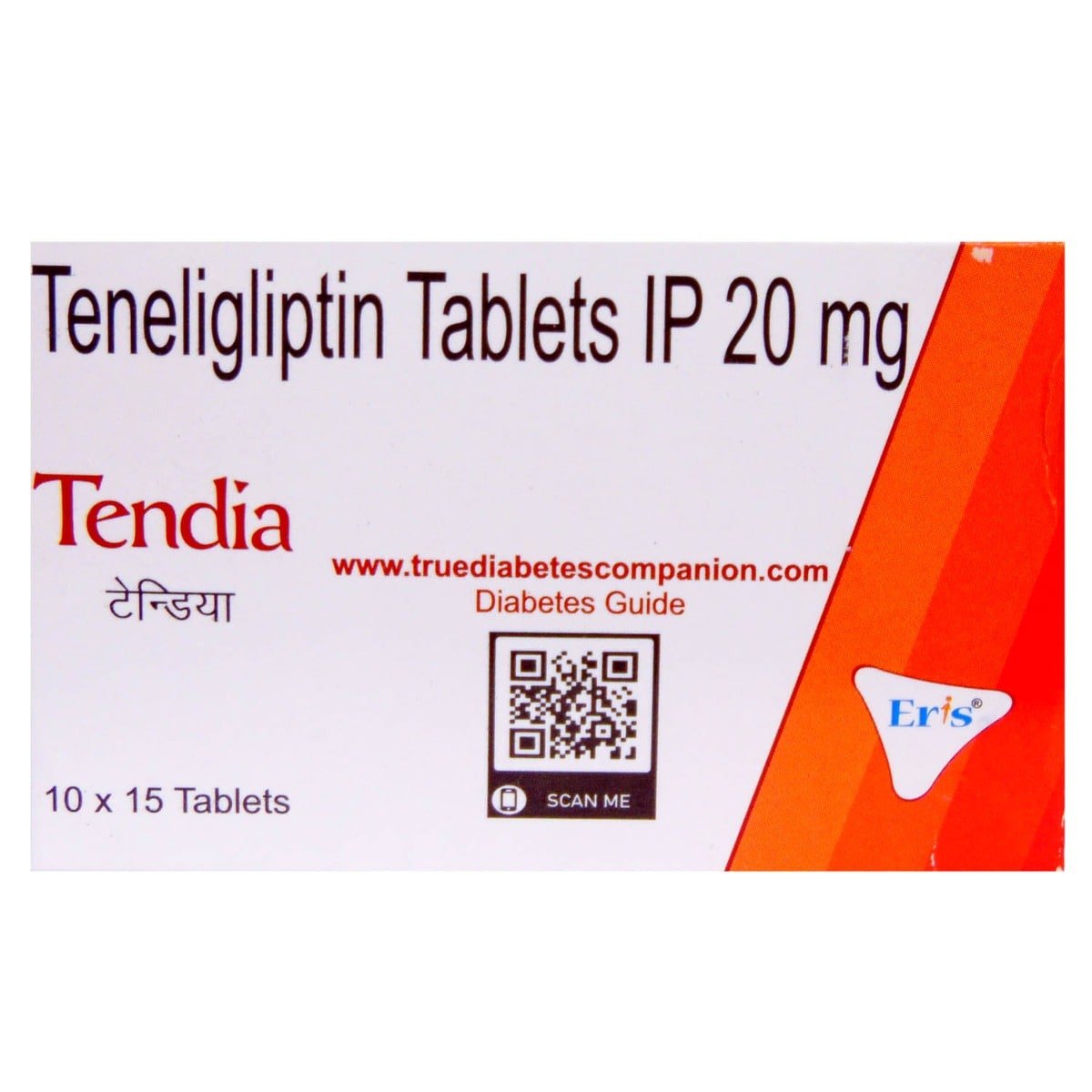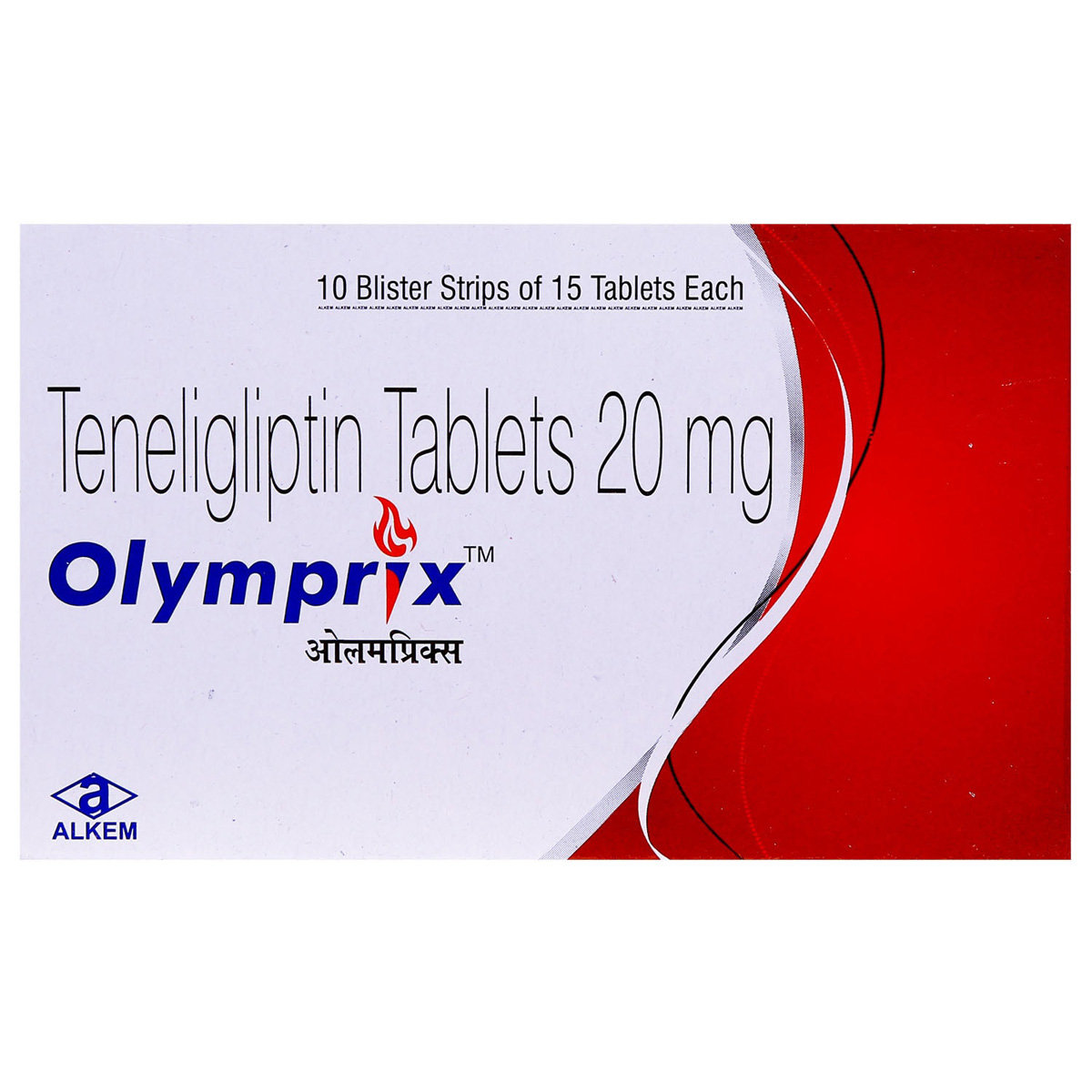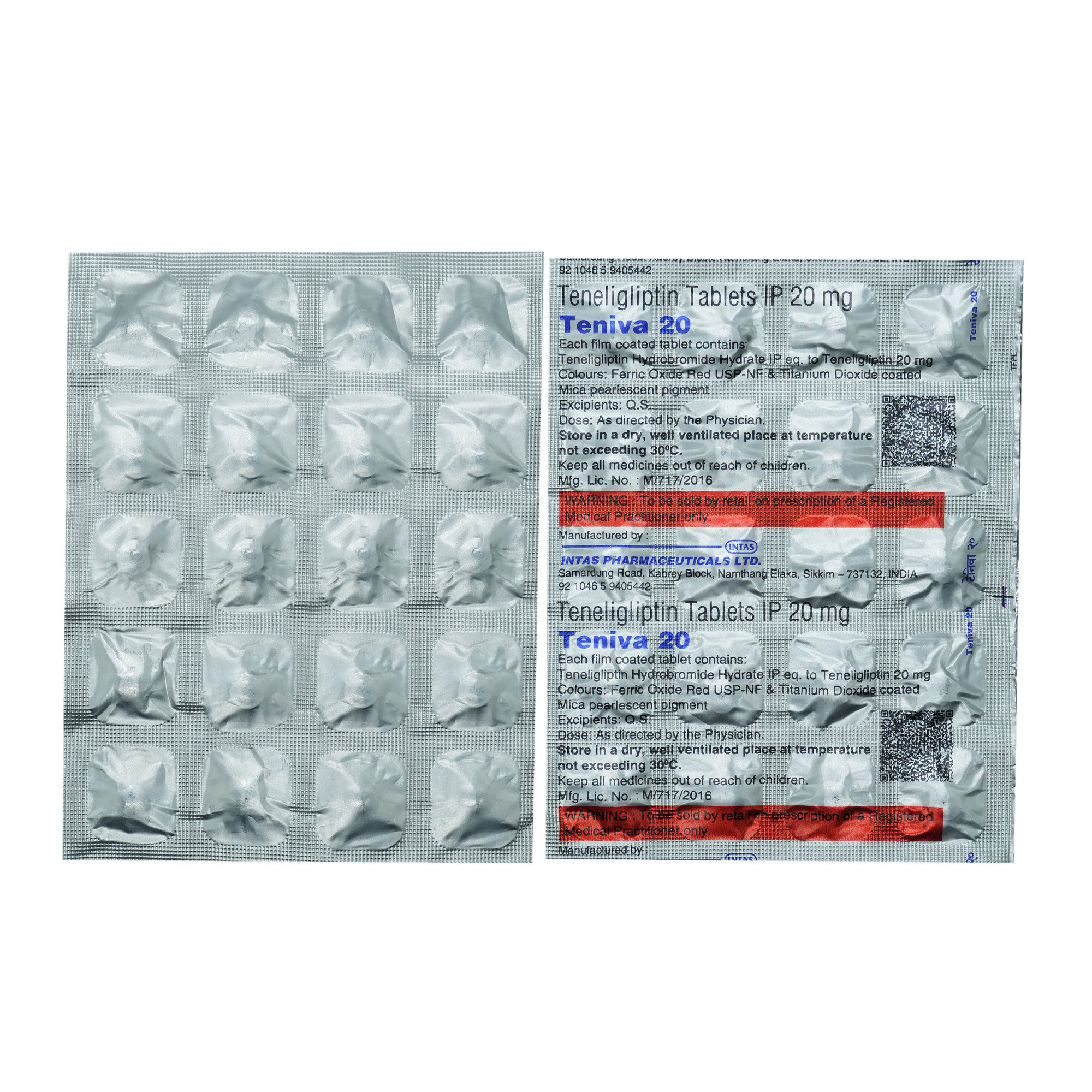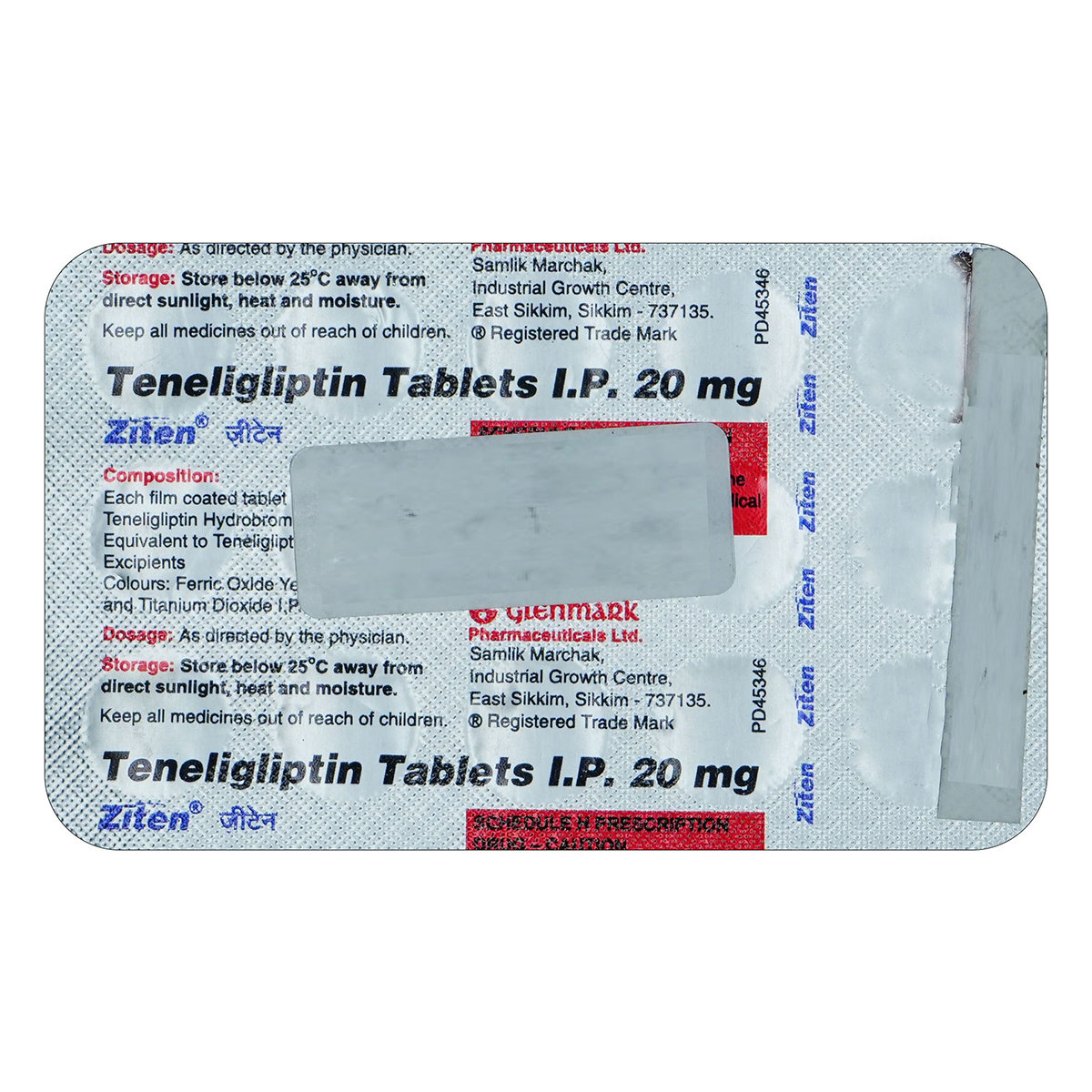- Home
- Daygliptin 20mg Tablet
Daygliptin 20mg Tablet Substitute
Daygliptin 20mg Tablet Substitute
Medicine Composition:
TENELIGLIPTIN-20MGAll Substitutes & Brand Comparisons
RX
Tgiptin 20 Tablet 10's
Auspharma Pvt Ltd
₹93.5
(₹5.14 per unit)
42% CHEAPERRX
Tenefit-20 Tablet 15's
Systopic Laboratories Pvt Ltd
₹101.5
(₹6.09 per unit)
32% CHEAPERRX
Dynaglipt Tablet 10's
Mankind Pharma Pvt Ltd
₹84.5
(₹7.61 per unit)
15% CHEAPERRX
Tenlimac 20 Tablet 10's
Macleods Pharmaceuticals Ltd
₹87
(₹7.83 per unit)
13% CHEAPERRX
Zita Plus Tablet 15's
Glenmark Pharmaceuticals Ltd
₹174
(₹10.44 per unit)
15% COSTLIERRX
Teneliglip 20 Tablet 10's
Akumentis Healthcare Ltd
₹116
(₹10.44 per unit)
15% COSTLIERRX
Tenepride-20 Tablet 30's
Micro Labs Ltd
₹349
(₹10.47 per unit)
16% COSTLIERRX
Afoglip 20 Tablet 30's
Torrent Pharmaceuticals Ltd
₹349
(₹10.47 per unit)
16% COSTLIERRX
Teneza 20 mg Tablet 15's
Torrent Pharmaceuticals Ltd
₹174.5
(₹10.47 per unit)
16% COSTLIERRX
Tglip 20 Tablet 20's
Intas Pharmaceuticals Ltd
₹232.5
(₹10.47 per unit)
16% COSTLIERRX
Tenglyn Tablet 15's
Zydus Cadila
₹176.5
(₹10.59 per unit)
17% COSTLIERRX
Tendia Tablet 15's
Eris Life Sciences Ltd
₹177
(₹10.62 per unit)
17% COSTLIERRX
Olymprix 20 mg Tablet 15's
Alkem Laboratories Ltd
₹177
(₹10.62 per unit)
17% COSTLIERRX
Teniva 20 Tablet 20's
Intas Pharmaceuticals Ltd
₹236.5
(₹10.65 per unit)
18% COSTLIERRX
Ziten Tablet 15's
Glenmark Pharmaceuticals Ltd
₹177.5
(₹10.65 per unit)
18% COSTLIER

When Should You Consider Switching from Daygliptin 20mg Tablet ?
Patients may explore substitutes in the following scenarios:
- High monthly cost of Daygliptin 20mg Tablet
- Non-availability in local pharmacies
- Generic recommendation by a doctor
- Side effects or better tolerability with alternatives
What to Know Before Switching
Before you switch from Daygliptin 20mg Tablet to another medicine, here are some important points to keep in mind:
Same salt, different brands:
Most substitutes contain the same active ingredient - TENELIGLIPTIN-20MG, but the fillers, coating, or manufacturing quality may vary slightly.
Consult your doctor first:
Even if the salt is the same, your doctor can confirm if the substitute is right for your condition, dosage, and health history.
Watch out for allergies or reactions:
Some people may react differently to certain brands due to inactive ingredients. If you notice any side effects, inform your doctor immediately.
Price ≠ effectiveness:
A lower-priced substitute doesn't mean it's less effective. Many generic medicines work just as well as branded ones.
Check the dosage form and strength:
Always match the substitute’s strength (e.g., 5mg, 10mg) and form (tablet, capsule, syrup) with what your doctor prescribed.
Uses
Daygliptin 20mg Tablet is used to lower blood sugar levels in Type 2 Diabetes Mellitus. The detailed uses of Daygliptin 20mg Tablet are as follows:
- Type 2 Diabetes Mellitus: Daygliptin 20mg Tablet helps control blood glucose when diet and exercise alone are insufficient.
- Improvement of insulin sensitivity: Daygliptin 20mg Tablet enhances the body’s response to insulin and lowers fasting and post-meal glucose levels.
- Prevention of diabetes complications: Daygliptin 20mg Tablet helps lower the risk of kidney, nerve, and eye damage brought on by uncontrolled diabetes.
Medicinal Benefits
- Daygliptin 20mg Tablet helps control blood sugar levels in Type 2 Diabetes. It is used when diet and exercise alone are insufficient to manage blood glucose levels.
- It helps maintain stable blood sugar throughout the day.
- Daygliptin 20mg Tablet inhibits the DPP-4 enzyme and decreases the amount of glucose released by the liver when it’s not needed, helping to prevent high fasting blood sugar.
- It helps prevent long-term complications of diabetes, such as retinopathy (eye damage), nephropathy (kidney damage), neuropathy (nerve damage), diabetic foot ulcers, and delayed wound healing.
- Daygliptin 20mg Tablet is used alone or in combination with other anti-diabetic medicines to improve overall blood sugar control.
FAQs
The substitutes of Daygliptin 20mg Tablet contain the same active salt(s) - TENELIGLIPTIN-20MG. However, they may differ in price, manufacturing quality, and inactive ingredients. Speak to your doctor to find a suitable option.
Switching to a generic substitute medicine in the place of Daygliptin 20mg Tablet is often possible if it has the same salt, strength, and dosage form. But always check with your doctor before making any changes to your medication.
Generics versions of Daygliptin 20mg Tablet are typically more affordable because they don’t include the original brand's research, development, and marketing costs. They contain the same active ingredient and are approved for safety and effectiveness.
Most people don’t notice any difference. However, some may react to different fillers or coatings. If you notice any unusual symptoms after switching, consult your doctor.
Make sure the new medicine has the same active salt, strength, dosage form. Always confirm the change with your doctor or pharmacist.
Substitutes of Daygliptin 20mg Tablet meet the same safety and efficacy standards as Daygliptin 20mg Tablet , but small differences in absorption or formulation can exist. A doctor can help you choose the right one for your needs.
Yes. Substitutes of Daygliptin 20mg Tablet may vary in color, size, or shape due to differences in manufacturing and branding, but this does not affect how they work.
Yes, it’s generally safe to switch between multiple substitutes of Daygliptin 20mg Tablet if they have the same salt and strength. However, always inform your doctor so they can monitor how your body responds.
Yes, many people safely use substitutes of Daygliptin 20mg Tablet for long-term treatment. Just ensure it’s done under medical supervision.
If your symptoms stay under control or lab results remain stable, the substitute for Daygliptin 20mg Tablet is likely working well. Regular follow-ups with your doctor are important.
Absolutely. Even with the same salt, small differences can affect how your body responds when switching from Daygliptin 20mg Tablet to its substitute. Always consult your doctor before switching.
Daygliptin 20mg Tablet is used to treat type 2 diabetes, especially in persons whose sugar levels are too high and cannot be controlled by dieting and exercising. It is used alone or in combination with other drugs to lower blood sugar levels.
No, Daygliptin 20mg Tablet is prescribed for only type 2 diabetes and not for type 1 diabetes.
Daygliptin 20mg Tablet works by promoting insulin secretion from the pancreas and regulating blood sugar post-meal by controlling glucagon secretion.
There is insufficient data on how Daygliptin 20mg Tablet affects pregnancy. It is safe to seek medical advice before you start Daygliptin 20mg Tablet if you are pregnant or get pregnant.
Do not stop taking Daygliptin 20mg Tablet until your prescribed course is finished, even if you feel better.
Hypoglycemia refers to low blood sugar levels. The symptoms of hypoglycemia include nausea, headache, irritability, hunger, sweating, and dizziness. Daygliptin 20mg Tablet can cause hypoglycemia. It can occur if you miss or delay your food, drink alcohol, over-exercise, or take other antidiabetic medicine along with this medicine. People with diabetes are advised to keep a quick sugar source like glucose tablets, honey, or fruit juice and consume it if they experience symptoms of low blood sugar.
Daygliptin 20mg Tablet may cause weight gain in some cases. Maintain proper weight by eating healthy food and exercising regularly.
No, Daygliptin 20mg Tablet is not bad for the kidneys. It can be used in people with kidney problems if prescribed by a doctor.
Yes, it is essential to manage my diet and exercise while on Daygliptin 20mg Tablet . Follow a healthy diet and exercise regularly. Avoid smoking and alcohol consumption. Manage stress by doing meditation. Cut back on sugary and unhealthy foods.
Taking more than the prescribed dose of Daygliptin 20mg Tablet may cause low blood sugar. Consult the doctor if you have taken an overdose of Daygliptin 20mg Tablet .
Daygliptin 20mg Tablet may cause pancreatitis (inflammation of the pancreas). Consult the doctor if you experience severe and persistent abdominal pain. Also, inform the doctor if you have pancreatic, kidney, liver or heart problems.
Yes, it is safe to take Daygliptin 20mg Tablet for the long term if prescribed by the doctor.
Daygliptin 20mg Tablet may cause side effects such as headache, hypoglycemia (low blood glucose levels), upper respiratory tract infection, and nasopharyngitis (infection of the nose and throat with a common cold). Talk to your doctor if you experience these side effects persistently.
Buy best Diabetics products by
Torrent Pharmaceuticals Ltd
Intas Pharmaceuticals Ltd
Eris Life Sciences Ltd
Lupin Ltd
Micro Labs Ltd
Sun Pharmaceutical Industries Ltd
Mankind Pharma Pvt Ltd
Alkem Laboratories Ltd
Lloyd Healthcare Pvt Ltd
Cipla Ltd
Macleods Pharmaceuticals Ltd
Abbott India Ltd
Primus Remedies Pvt Ltd
Glenmark Pharmaceuticals Ltd
Aristo Pharmaceuticals Pvt Ltd
Dr Reddy's Laboratories Ltd
USV Pvt Ltd
La Renon Healthcare Pvt Ltd
Wockhardt Ltd
Emcure Pharmaceuticals Ltd
Fusion Health Care Pvt Ltd
Ajanta Pharma Ltd
Ipca Laboratories Ltd
Alembic Pharmaceuticals Ltd
Corona Remedies Pvt Ltd
East West Pharma India Pvt Ltd
Hbc Life Sciences Pvt Ltd
Eswar Therapeutics Pvt Ltd
Zydus Healthcare Ltd
Alteus Biogenics Pvt Ltd
Elbrit Life Sciences Pvt Ltd
Mitoch Pharma Pvt Ltd
Medley Pharmaceuticals Ltd
Ranmarc Labs
Sinsan Pharmaceuticals Pvt Ltd
Msn Laboratories Pvt Ltd
Nirvana India Pvt Ltd
Tas Med India Pvt Ltd
Akumentis Healthcare Ltd
Arkas Pharma Pvt Ltd
Unison Pharmaceuticals Pvt Ltd
Leeford Healthcare Ltd
Acmedix Pharma Llp
Sanofi India Ltd
Q Check Pharmaceuticals
Novo Nordisk India Pvt Ltd
Blue Cross Laboratories Pvt Ltd
Xemex Life Sciences
Neucure Lifesciences Pvt Ltd
Alvio Pharmaceuticals Pvt Ltd
Anthem Bio Pharma
Spectra Therapeutics Pvt Ltd
Sydmen Life Sciences Pvt Ltd
Aareen Healthcare Pvt Ltd
Diacardus Pharmacy Pvt Ltd
Jubilant Lifesciences Ltd
Talent India Pvt Ltd
Edoc Life Sciences Pvt Ltd
Stature Life Sciences Pvt Ltd
Systopic Laboratories Pvt Ltd
Panacea Biotec Ltd
Sanz Pharmaceuticals
Shrrishti Health Care Products Pvt Ltd
Verse Lifesciences
Akesiss Pharma Pvt Ltd
Franco Indian Pharmaceuticals Pvt Ltd
Hicxica Formulations Pvt Ltd
Indoco Remedies Ltd
Lividus Pharmaceuticals Pvt Ltd
Capital Pharma
Elinor Pharmaceuticals (P) Ltd
Saan Labs
Zydus Cadila
Biocon Ltd
Eli Lilly and Company (India) Pvt Ltd
Lippon Pharma Pvt Ltd
MERAKI HEALTH
Remedy Life Sciences Pvt Ltd
Koye Pharmaceuticals Pvt Ltd
Morepen Laboratories Ltd
Eysys Pharmaceutical Pvt Ltd
MEDICAMEN BIOTECH LTD
Atos Lifesciences Pvt Ltd
Azkka Pharmaceuticals Pvt Ltd
Converge Biotech Pvt Ltd
Erinyle Health Care Pvt Ltd
Elder Pharmaceuticals Ltd
FDC Ltd
Heal (India) Laboratories Pvt Ltd
Knoll Healthcare Pvt Ltd
Jarun Pharmaceuticals Pvt Ltd
Opsis Care Lifesciences Pvt Ltd
Vasu Organics Pvt Ltd
Wallace Pharmaceuticals Pvt Ltd
CADOMAX HEALTHCARE PVT. LTD
Cadomed Pharmaceuticals India Pvt Ltd
Daylon healthcare pvt Ltd
Lincoln Pharmaceuticals Ltd
Medicure Life Sciences Pvt Ltd
Olcare Laboratories Pvt Ltd

